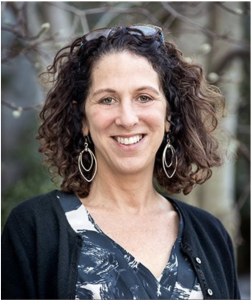Who Do Domestic Violence Survivors Call When They Don’t Call The Police? Implications For Developing Network-Oriented Services For Healing And Safety
Congressional Briefing by Dr. Etiony Aldarondo: Reinventing Interventions for People Who Use Intimate Partner Violence
September 26, 2022Impact of Disasters on Youth: Building Resilience in Children and Families
November 14, 2022Join us on October 28, 2022 10:00am-12:00pm EST
When:
Friday, October 28, 2022
10:00am-12:00pm EST
Where:
Zoom
Registration:
For Continuing Education: $35
Free general registration
Continuing Education (CE) information:
*Florida License Only
2 CE for Psychologists
2 Credit Hours provided for LCSW, LMHC & LMFT (State of Florida)
All CEs require additional CE request during registration located on our website, a $35 fee, and an evaluation form returned to us following the training.
*CEs for Florida license only LCSW, LMHC & LMFT. Upon request, The Melissa Institute will provide a certificate of completion that can be self-reported to other state boards. We cannot guarantee that it will be accepted by other boards for approval.)
About:
Heightened attention to police brutality has created momentum for developing alternative, community-based responses for Intimate Partner Violence (IPV). However, to build effective alternatives we must know what survivors already do in moments of acute danger, when they do not call the police. Using a qualitative descriptive methodology, we conducted 25 interviews with a diverse sample of IPV survivors. Each participant described the first, the worst and the most recent IPV incident, to whom they reached out to and why, the outcomes of their help-seeking, influences on the process and what they want from Domestic Violence (DV) programs during these frightening moments. This course will describe the results of this research and their implications for understanding and strengthening the "community" that survivors already have. This course will also describe several key innovations that DV Service Providers and Mental Health Professionals might consider in order to expand survivor options during dangerous moments.
Learning Objectives:
Participant will be able to:
- Analyze how intimate partner violence survivors respond in moments of heightened danger with their partner.
- Identify the conditions that influence a survivor’s decision to reach out to an informal network when they are most afraid.
- Review specific practices and programs that strengthen a survivor’s ability to rely on members of their informal network.

Lisa A. Goodman, Ph.D.
Lisa A. Goodman is a clinical-community psychologist and Professor in the Department of Counseling and Applied Developmental Psychology at Boston College. She uses a community-based participatory research approach to explore intimate partner violence, aiming to illuminate how to improve systemic responses and how survivors use their social networks for healing and safety. Her research highlights the strengths and needs of marginalized survivors, including communities of color and people who are unhoused. She has written over 120 articles and chapters on these topics and has received grants from the National Institute of Justice and National Institute of Mental Health. Dr. Goodman consults with national and local domestic violence organizations, and she is co-coordinator of the Domestic Violence Program Evaluation and Research Collaborative. In addition to her research and clinical accomplishments she has received national awards for teaching and mentoring excellence, including the Elizabeth Hurlock Beckman Award.
Register here:
Continuing Education Registration:
For payment for CEs:
Following registration, you will be sent the zoom link.
*CEs for Florida license only. Upon request, the Melissa Institute will provide a certificate of completion that can be self-reported to other boards. We cannot guarantee that it will be accepted by other boards for approval.
The Melissa Institute for Violence Prevention & Treatment is approved by the American Psychological Association to sponsor continuing education for psychologists. The Melissa Institute for Violence Prevention & Treatment maintains responsibility for this program and its content.
IMPORTANT DISCLOSURE: None of the planners and presenters for this educational activity have relevant financial relationship(s)* to disclose with ineligible companies* whose primary business is producing, marketing, selling, re-selling, or distributing healthcare products used by or on patients.
*Financial relationships are relevant if the educational content an individual can control is related to the business lines or products of the ineligible company.
